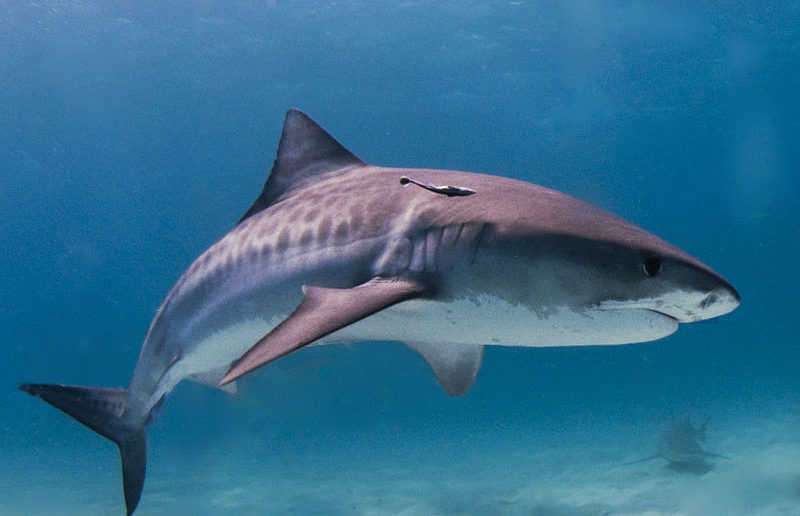The discovery of a skull from a 325-million-year-old primitive shark species shows that modern sharks are highly evolved creatures, despite maintaining basic “sharkiness” over millions of years.
In a study published in the journal Nature, researchers were able to examine an extremely well preserved three dimensional fossil of a primitive shark skull from a newly named species Ozarcus mapesae, a rare opportunity because shark skeletons are made of soft cartilage and not hard bone.
The fossil allowed the scientists to examine the gill arches and associated structures around the jaw in an early shark, with the arrangement of those arches found to be more like those found in modern bony fish, and not sharks.
Alan Pradel, a postdoctoral researcher at the Museum and the lead author of the study, said:
“Sharks are traditionally thought to be one of the most primitive surviving jawed vertebrates. And most textbooks in schools today say that the internal jaw structures of modern sharks should look very similar to those in primitive shark-like fishes. But we’ve found that’s not the case. The modern shark condition is very specialized, very derived, and not primitive.”
The skull of a newly discovered 325-million-year-old shark-like species suggests that early cartilaginous and bony fishes have more to tell us about the early evolution of jawed vertebrates—including humans—than do modern sharks, as was previously thought. The new study, led by scientists at the American Museum of Natural History, shows that living sharks are actually quite advanced in evolutionary terms, despite having retained their basic “sharkiness” over millions of years. The research is published today in the journal Nature.
“Sharks are traditionally thought to be one of the most primitive surviving jawed vertebrates. And most textbooks in schools today say that the internal jaw structures of modern sharks should look very similar to those in primitive shark-like fishes,” said Alan Pradel, a postdoctoral researcher at the Museum and the lead author of the study. “But we’ve found that’s not the case. The modern shark condition is very specialized, very derived, and not primitive.”




